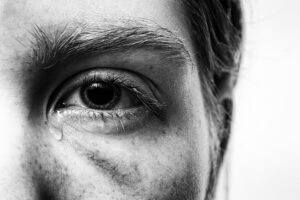Trauma can dramatically impact the course of one’s life; if it is left unaddressed, adverse experiences can lead to premature death. A new report on mortality from the Centers for Disease Control and Prevention (CDC) indicates that childhood trauma is a public health issue that we must address. The report shows that one in six people across the United States has experienced four or more kinds of adverse childhood experiences or ACEs.
Trauma can take many different shapes: neglect, abuse, familial separation (i.e., adoption), and exposure to mental health or substance abuse problems. Each person is different; an event may be more traumatic for one person than it is for another. There is no way to predict how an experience will influence a young person.
Author Junot Díaz, writing for The New Yorker in a piece titled: The Legacy of Childhood Trauma, said, “Trauma is a time traveller, an ouroboros that reaches back and devours everything that came before.” His writing lays out how an adverse childhood experience influenced everything, from relationships to employment.
In the field of addiction medicine, professionals are acutely aware of the correlation between childhood trauma and substance use and abuse. Paradoxically, many will use drugs and alcohol to cope with untreated trauma, but the practice has the unintended effect of placing such people at risk of being re-traumatized. It’s a vicious cycle, an ouroboros: a snake eating its tail.
Childhood Trauma and Addiction
Traumatic events, at any point in life, can have disastrous consequences like the development of post-traumatic stress disorder. However, when traumas or ACEs occur during one’s formative years, the risk of experiencing more significant problems is much higher. A previous study from the CDC on adverse childhood experiences found:
- For each ACE, the risk for early initiation of substance abuse increases two to four times.
- Individuals with three or more ACEs have higher rates of depression, domestic violence, sexually transmitted diseases, and heart disease.
- Men and women with five or more ACEs are seven to 10 times more likely to become substance abusers.
- Almost two-thirds of intravenous drug users report ACEs in their history.
Trauma, whether it occurs as a child or in adulthood, must be addressed by professionals. Too often, the lingering effects of trauma are left untreated; PTSD becomes a person’s reality, and self-medication ensues. Drugs and alcohol can provide temporary relief, but the practice places people at risk of developing alcohol and substance-related issues. PTSD and addiction are common co-occurring disorders.
The Substance Abuse and Mental Health Services Administration (SAMHSA) reports that about one-third of people exposed to trauma develop PTSD. Moreover, 75 percent of people in substance abuse treatment report having experienced abuse and trauma. While men are more likely to be exposed to traumatic events, women are at a higher risk of developing PTSD.
Veterans with PTSD and Substance Use Disorder
With Veterans Day around the corner, we must discuss rampant PTSD and substance use disorder (SUD) in the military. As we pointed out, exposure to adverse events can lead people down a precarious path. If an individual doesn’t receive care and support for their condition, then they are likely to resort to drugs and alcohol for temporary relief.
The U.S. Department of Veterans Affairs reports that more than 2 of 10 veterans with PTSD also have SUD. What’s more, almost 1 out of every 3 veterans seeking treatment for SUD has PTSD as well.
Fortunately, effective treatments exist to address both PTSD and SUD simultaneously. Those who experience trauma as a child or in adulthood, who develop use disorders can and do recover.
We have found that both posttraumatic stress disorder and substance use can be treated concurrently [meaning, at the same time].” — Ronald E. Acierno, Ph.D., Vice-Chair For Veteran Affairs and Executive Director Of The UTHealth Trauma And Resilience Center
Orange County Dual-Diagnosis Treatment
If you are struggling with PTSD, SUD, or both, then please contact PACE Recovery Center at your earliest convenience. We specialize in the treatment of men who face challenges related to addiction and mental health disorders. We offer several different types of programs to serve the unique needs of each client best.
Recovery begins with a phone call or email to an admissions counselor. Please take the first step: 800-526-1851.


